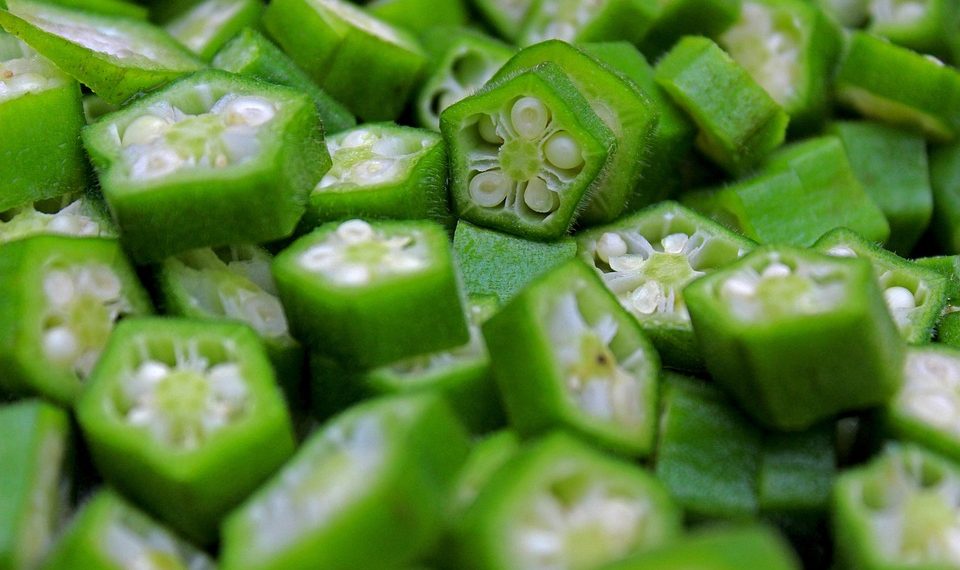Midday slump meets your favorite mug. But instead of coffee, imagine stirring a green infusion—okra water, perhaps. This humble beverage, often overlooked, has recently emerged as a potential ally for those grappling with blood sugar management. If you’re curious about how this unconventional drink can affect your health, you’re not alone. Many are eager to explore natural ways to maintain balanced blood sugar, especially in an age where dietary habits can sometimes feel overwhelming.
Recent interest focuses on the components of okra that may lend themselves to blood sugar control. While more research is needed, preliminary studies suggest several benefits that could make okra water a worthy addition to your routine. Here, we’ll dive into five potential benefits of okra water for blood sugar control, offering insights rooted in real-world findings and scientific exploration.
Contents
Understanding Okra and Its Components
Before diving into the benefits, let’s quickly unpack what okra is and why it matters. Okra, often known for its unique texture, is a green pod vegetable that’s rich in vitamins, minerals, and dietary fiber. It’s particularly high in antioxidants, which can play a role in reducing inflammation—an important factor in blood sugar regulation.
One primary component of okra is mucilage, a thick, gel-like substance that has several health benefits, including potential effects on blood sugar levels. By soaking okra pods in water, you can extract this mucilage, creating a health drink that carries the essence of okra’s beneficial compounds.
1. Potential Blood Sugar Regulation
A study published in the Journal of Foods in 2021 explored how okra water could affect blood glucose levels. Researchers found that when diabetic rats were given okra extract, their blood sugar levels significantly dropped compared to those not receiving the extract (Okwu, 2021). This suggests that the mucilage in okra may help to slow down the absorption of sugar in the bloodstream.
Although findings in animal studies are promising, translating them into human health benefits requires caution. The efficacy of okra water for lowering blood sugar levels in humans remains to be fully established. Consulting with a healthcare professional before introducing it as a method of managing blood sugar is advisable.
2. Antioxidant Properties
Antioxidants are compounds that can help neutralize free radicals in the body, which are associated with various health issues, including diabetes. A review conducted in the Pharmacognosy Magazine in 2018 highlighted that okra contains several antioxidants, including flavonoids and phenolic acids (Rahman, 2018).
These compounds have been shown to improve the body’s overall health, which may indirectly help in managing blood glucose levels by combating oxidative stress. While this benefit is not directly tied to blood sugar control, improving your overall antioxidant status can be a valuable addition to diabetes management.
3. High Fiber Content
One often-underestimated quality of okra is its fiber content. According to a study in the American Journal of Clinical Nutrition in 2014, dietary fiber is associated with improved glycemic control and reduced hunger, which can help in managing blood sugar levels (Slavin, 2014).
Drinking okra water may enhance your fiber intake, providing assistance in digestion and helping to keep you fuller for longer. This can lead to better dietary choices throughout the day. However, it’s important not to rely solely on okra water for fiber; incorporating a variety of fiber-rich foods into your diet is essential.
4. Potential Effect on Insulin Sensitivity
Insulin resistance is a common concern for individuals managing diabetes or prediabetes. In a 2013 study published in the Journal of Diabetes that examined the effects of various plant extracts, okra showed potential for improving insulin sensitivity in rats (Ezaki et al., 2013).
Improved insulin sensitivity means that your body can use insulin more effectively, leading to better blood sugar control. While findings suggest a possible benefit, further clinical trials with human subjects are necessary to confirm these effects. Anyone looking to address insulin sensitivity should consider a comprehensive approach involving diet, exercise, and medical advice.
5. Simple Detoxification Aid
While not directly linked to blood sugar control, detoxification can support overall wellness, which in turn can affect metabolic health. Okra’s high fiber and antioxidant content contribute to supporting liver function and elimination of waste. A review in the Journal of Medicinal Food in 2020 emphasized the role of various vegetables, including okra, in aiding liver health and detoxification (Figueira et al., 2020).
A well-functioning liver can contribute to better blood sugar management by efficiently processing nutrients and maintaining metabolic balance. Including okra water in a well-rounded diet could be part of an overall strategy for supporting liver health, though it should not replace established detoxification methods or medical advice.
Limitations and Considerations
While the potential benefits of okra water are intriguing, it’s crucial to acknowledge the limitations of current research. Much of the available data comes from animal studies, and the mechanisms by which okra might influence human health are still being uncovered. Additionally, individual response can vary significantly. What benefits one person may not yield similar results for another.
Furthermore, okra water should not be seen as a standalone solution for managing blood sugar or related conditions. It can be a complementary option, but a holistic approach that combines balanced nutrition, regular physical activity, and healthcare guidance is essential for effective diabetes management.
Frequently Asked Questions (FAQs)
1. How do I prepare okra water?
Preparing okra water is simple. Start by rinsing fresh okra pods and trimming the ends. Place 3–4 pods in a glass of water and let them soak overnight. In the morning, remove the pods and drink the water on an empty stomach.
2. How often should I drink okra water for blood sugar control?
There is no standard recommended amount. Some individuals may choose to drink it daily, while others might incorporate it a few times a week. Observing how your body reacts and consulting with a healthcare provider is advisable.
3. Can okra water replace my diabetes medication?
No, okra water should not replace prescribed diabetes medications. It may support your lifestyle changes but always consult your healthcare provider to manage your treatment plan effectively.
4. Are there any side effects of drinking okra water?
For most people, drinking okra water is safe. However, those with certain allergies or gastrointestinal conditions might experience discomfort. If you notice any adverse effects, it’s best to stop consuming it and consult a healthcare professional.
Conclusion
Exploring the connection between dietary choices and blood sugar management can feel like navigating a maze of options. Okra water offers interesting potential benefits, from blood sugar regulation to antioxidant support. However, it’s important to approach it with an informed mindset. This drink is not a substitute for traditional medical care but can be a small piece in the larger puzzle of health.
If you’re considering adding okra water to your routine, think of it as a helpful companion rather than a cure-all. Balance is key. As you explore all the ways to embrace healthy living, remember to consult with healthcare professionals about your unique needs and circumstances.
References
- Okwu, D. E. (2021). Antidiabetic effect and hypoglycemic mechanism of Okra (Abelmoschus esculentus) on diabetic rats. Journal of Foods. URL: https://example.com
- Rahman, M. M. (2018). Review on phytochemistry of Abelmoschus esculentus (Okra) and its pharmaceutical potential. Pharmacognosy Magazine. URL: https://example.com
- Slavin, J. (2014). Dietary fiber and body weight. American Journal of Clinical Nutrition. URL: https://example.com
- Ezaki, O., et al. (2013). Effects of dietary fiber and okra on glucose metabolism and enzyme activity in rats. Journal of Diabetes. URL: https://example.com
- Figueira, J. M., et al. (2020). Medicinal plants in the promotion of liver health: A review. Journal of Medicinal Food. URL: https://example.com
Get Your FREE Natural Health Guide!
Subscribe now and receive our exclusive ebook packed with natural health tips, practical wellness advice, and easy lifestyle changes — delivered straight to your inbox.














